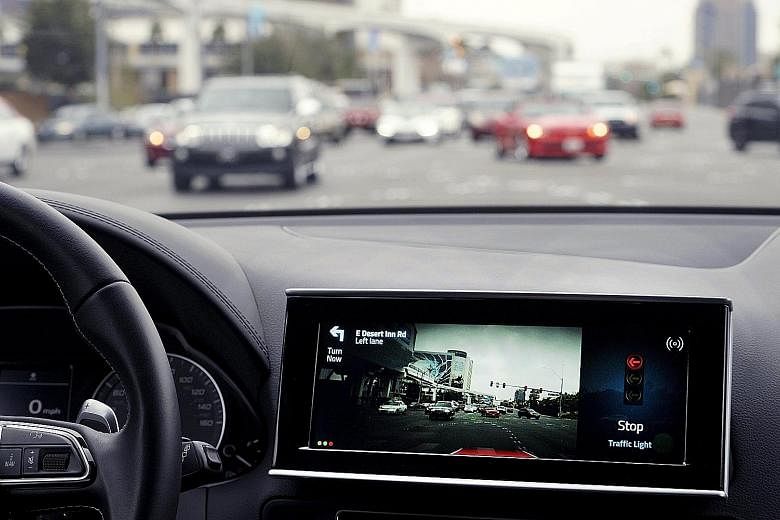WASHINGTON • General Motors has announced that it is buying Cruise Automation, a San Francisco self-driving vehicle start-up, the latest move by the auto company as it competes with Silicon Valley to develop self-driving cars that could be used in ride-sharing fleets.
Cruise, with 40 employees, was launched in 2013 and has raised US$20 million (S$27.5 million) in venture capital to date, founder Kyle Vogt said. GM and Cruise did not disclose the value of GM's acquisition, which was announced on Friday. The technology website Re/Code cited sources as saying GM paid US$1 billion, but a GM spokesman declined to comment on that figure.
"We will be committing considerable resources to recruit and grow the capability of the team," GM president Dan Ammann said.
GM's goal is to use Cruise's technology and its people to accelerate plans to launch autonomous vehicles, potentially as part of ride sharing fleets, Mr Ammann said.
GM, the largest auto-maker in the US, has been aggressively expanding its portfolio of new businesses dedicated to driverless cars and other personal mobility options like ride-hailing services.
In January, GM said it would invest US$500 million in ride-hailing company Lyft and followed that by forming a new car-sharing brand operation called Maven. The company has also established a separate unit for autonomous vehicle development. GM executives have outlined plans to develop self-driving vehicles, including autonomous electric vehicles, that could be deployed in ride-sharing operations in various markets.
Other auto-makers are also forging into ride sharing and autonomous driving. Germany's Continental and Delphi Automotive, among others, are prowling for technology companies to buy, gathering in intellectual property and programming talent. The flurry of investments by traditional auto-makers reflects a fear that the century-old business of building and selling cars that people drive themselves is at risk, even though global vehicle demand is strong.
Cruise has been successful in adapting conventional cars to operate on highways with self-driving features. The company installs sensors, computer equipment and other devices that can control steering, braking and acceleration.
Automakers like Tesla, Audi and Mercedes-Benz are also rapidly adding equipment that allows vehicles to partly drive themselves, while technology giant Google is in advanced stages of developing cars that function without any driver involvement.
Industry analysts said the GM deal underscored how competitive the race towards autonomous vehicles had become. "Like it or not, autonomous cars are coming, and coming fast," said an analyst with auto research firm Kelley Blue Book, Mr Akshay Anand.
US Transportation Secretary Anthony Foxx has said that regulators will hold public meetings to gather information on potential guidelines for autonomous vehicles.
"We are witnessing a revolution in auto technology that has the potential to save thousands of lives," he said. "In order to achieve that potential, we need to establish guidelines for manufacturers that clearly outline how we expect autonomous vehicles to function."
REUTERS, NEW YORK TIMES

